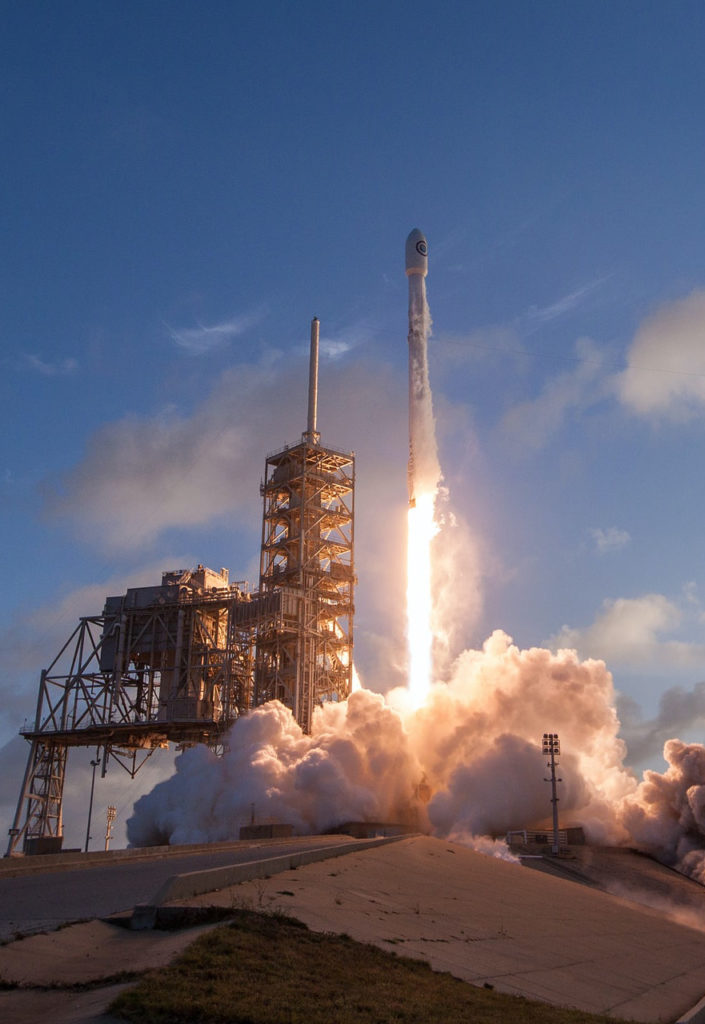
New course offering on Engineering Considerations and Research for Supporting Human Spaceflight
An engineering collaboration offers a new course focusing on space engineering

An engineering collaboration offers a new course focusing on space engineering
Engineering Considerations and Research for Supporting Human Spaceflight
Emily Matula
Leidos, NASA Johnson Space Center
AEROSP 495 / Fall 2022 (1 credit)
This is a 6-session seminar series to review the Environmental Control and Life Support Systems (ECLSS) necessary to support human spaceflight, the impacts of the space environment to the human system, and what special design constraints the spaceflight environment imposes. The seminar series will be organized over one semester as a special topic and with lectures in the first six weeks of the semester. Lecture material includes a review of the body’s response to microgravity, research characterizing human spaceflight adaptation, the vehicle systems required to address these responses, and some of the ECLSS designs used today. In the second half of the semester, using the material they have learned throughout the series, and referencing published academic journals, students will develop a short paper detailing a human spaceflight research question they would like answered with a spaceflight experiment.
Target audience are graduate or 4th year undergraduate students in the College of Engineering. Students involved in research or activities supporting human space exploration from other colleges may also sign up on a case-by-case basis. Registration to this course requires approval by the instructor. To get approval, please email the instructor (see contact information below) and cc Lauren Russell (larusse@umich.edu). Information about the registration process will be given.
There are no pre-requisites for this course. Registration to this course requires approval by the instructor.
Time: Friday, 10.30 am – 11.30 am Location: EECS 3433
Access to the following resources is required for the course:

Each lecture will be 50 minutes long and will be delivered as a combination of remote and in-class lectures. A tentative breakdown of lecture format is indicated below. Weekly office hours (1 hr) will be held remotely during the evening. When lectures are in in-person, office hours for that week will be held in-person with extended hours (2-3 hrs).
Brief introduction to the history of human spaceflight (Mercury – today), review of class content, assigned reading, and project.
Introduction to human physiological adaptation to short/long duration spaceflight (ug and partial g). Reviewing case studies and medical findings of recent spaceflight experiments and necessary studies for future missions.
Review life support systems (Environmental Control and Life Support Systems, ECLSS) necessary to support human spaceflight missions (orbit/transit or surface). Current and historical approaches to each subcategory (food, waste, air revitalization, etc.) are included. Will include terrestrial extreme environments in review.
Using concepts from Week 2 & 3, review current designs for long duration orbiting and surface habitats and rationale behind designs. This includes pressurized rovers and surface vehicles.
Drawing from the experience of the instructor in extravehicular activity (EVA), this week will focus on EVA operations including EVA training, execution, and spacesuit design.
Review of the businesses supporting human spaceflight through history, current commercialization (private astronaut programs), and future business plans/opportunities in human spaceflight. Will also provide time for project Q/A.
Students will have time to research a human spaceflight topic of their choice and write a proposal white paper for a spaceflight research campaign to answer a question within the human spaceflight community. During this period, weekly virtual office hours during scheduled class time will be available for help on the project.
A draft of the question and high-level review of the experiment design is due to gauge student progress and to receive topic feedback.
A draft of the student’s paper will go through a double-blind peer review. A pair of students will review each other’s paper and submit feedback by the end of the week on the paper topic and structure. The instructor will provide paper comments when reviewing the paired evaluations.

The class project will be a three-page minimum paper proposing a human spaceflight experiment that falls within the 2020 NASA Technology Taxonomy TX06 (Human Health, Life Support, and Habitation Systems) focus. This proposal will include a project summary, background, project description (including research hypothesis and relevant variables), methodology, expected range of results, and summarized conclusions from a resulting true or false hypothesis. The format will follow the standard NSF proposal template and at least 5 cited references are required.
The instructor will be available for help on the project via email and during her scheduled office hours. Feedback will be provided during Week 10 and Week 12 to guide student’s progress.
The grade for the course will be based on class participation (25%) via attendance and the proposed project white paper (75%), which will be due on the last day of class.

Dr. Emily E. Matula is currently at NASA Johnson Space Center in Houston, TX working as an EVA flight controller/instructor. Her role requires her to be a SME about spacesuit systems and teach EVA- necessary knowledge to ISS astronauts. She earned her undergrad degree in mechanical engineering and master’s degree in space engineering at the University of Michigan, and her PhD in Bioastronautics (human spaceflight) at the University of Colorado. Her passion is human spaceflight and making sure humans can explore the universe as safely as possible.
For any inquiries on this course, please reach out to Emily Matula, email: emmatula@umich.edu, or Mirko Gamba, Department of Aerospace Engineering, email: mirkog@umich.edu.